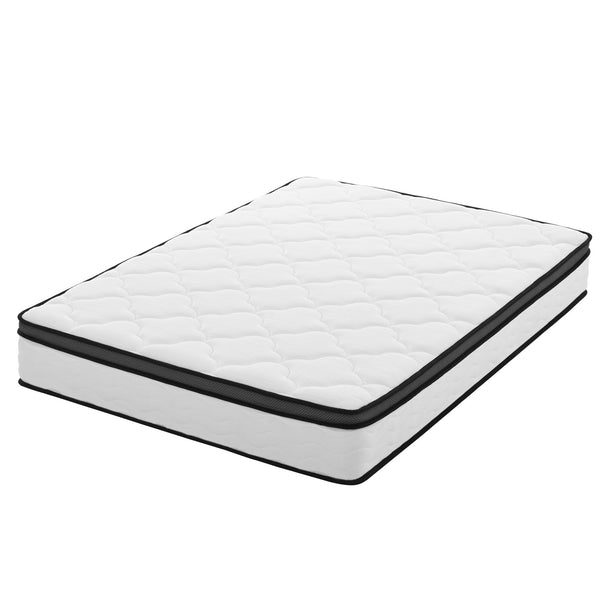
Overview
Understanding the connection between sleep and nutrition is vital for overall health. Quality sleep enhances mental sharpness, emotional balance, and physical restoration, while proper nutrition provides essential nutrients that promote better sleep. Key factors include avoiding sleep disruptors like caffeine, alcohol, and heavy meals, and incorporating sleep-friendly foods such as almonds, tart cherries, and fatty fish. Establishing a consistent meal schedule and healthy sleep hygiene practices can further improve sleep quality and overall well-being.
Frequently Asked Questions
1. How does sleep affect overall health?
2. What role does nutrition play in sleep quality?
3. Which macronutrients are important for good sleep?
4. What are some common foods that disrupt sleep?
5. What are tips for creating a sleep-friendly nutrition plan?
In the quest for optimal health, the relationship between sleep and nutrition often goes unnoticed. However, these two elements are intricately linked, creating a powerful synergy that can dramatically influence our well-being. In this article, we will explore how nutrition affects sleep quality and vice versa, giving you insights that can lead to better restful nights and energized days. At The Sleep Loft, we believe that understanding this connection can help you unlock the full potential of a good night’s sleep.
The Importance of Sleep in Our Lives
Before delving into how nutrition impacts sleep, it’s crucial to understand why sleep is vital for our overall health. Sleep is not a luxury; it's a necessity. Quality sleep affects your mental sharpness, emotional balance, and physical health. During sleep, the body undergoes various restorative processes, including:
- Memory consolidation: Sleep helps to solidify new information and experiences into lasting memories.
- Physical restoration: Growth and repair of tissues and muscles occur primarily during a good night’s rest.
- Hormonal regulation: Sleep plays a critical role in hunger hormones, like ghrelin and leptin, affecting appetite and weight management.
- Immune function: Quality sleep boosts the immune system, enhancing your body’s ability to fend off illnesses.
The Role of Nutrition in Sleep Quality
Nourishing your body with the right foods can significantly enhance your sleep quality. A well-balanced diet provides essential nutrients that promote better sleep and help regulate sleep-wake cycles. Here’s how various aspects of nutrition can impact your ability to get a restful night’s sleep:
Macronutrients and Sleep
The three main macronutrients—carbohydrates, proteins, and fats—each play unique roles in sleep quality:
- Carbohydrates: Incorporating complex carbohydrates, such as whole grains, can increase the availability of tryptophan in the brain, the amino acid that helps produce sleep-inducing serotonin and melatonin.
- Proteins: Proteins provide amino acids that contribute to the production of neurotransmitters responsible for promoting sleep. Foods rich in protein, like fish and poultry, are beneficial.
- Fats: Healthy fats, like omega-3 fatty acids, found in fish, walnuts, and flaxseeds, can improve sleep quality by reducing inflammation and enhancing brain health.
Essential Vitamins and Minerals
Vitamins and minerals play a key role in sleep regulation. Here are several essential nutrients that can pave the way to better sleep:
- Magnesium: Often dubbed the "sleep mineral," magnesium helps relax the body and reduces insomnia by modulating the sleep-wake cycle.
- Calcium: Foods rich in calcium, like dairy and leafy greens, are vital for converting tryptophan into melatonin, the hormone responsible for prompting sleep.
- Vitamin B6: This vitamin aids in the production of serotonin and melatonin, linking its intake to improved sleep quality.
- Vitamin D: Studies have shown a strong correlation between lower levels of Vitamin D and sleep disorders. Adequate sunlight exposure and foods like fatty fish can help maintain optimal levels.
Common Nutritional Sleep Disruptors
While certain foods can help improve your sleep, others can hinder your sleep quality. Being aware of these disruptors can assist you in making better dietary choices:
Caffeine
Caffeine is a potent stimulant found in coffee, tea, chocolate, and certain energy drinks. Consuming caffeine too close to bedtime can lead to difficulty falling asleep and decreased sleep duration. It's advisable to limit caffeine intake in the afternoon and evening.
Alcohol
While alcohol may initially promote relaxation, it can disrupt sleep later in the night. It affects sleep architecture, leading to increased wakefulness and reduced REM sleep, which is essential for restorative rest.
Heavy Meals
Eating large or heavy meals, particularly before bedtime, can lead to discomfort and indigestion, making it harder to fall asleep. It’s best to have your last meal at least 2-3 hours before you plan to sleep.
Creating a Sleep-Friendly Nutrition Plan
Now that we've examined the connection between sleep and nutrition, how can you put this knowledge into action? Creating a sleep-friendly diet involves both the foods you choose and the timing of your meals.
Foods to Incorporate for Better Sleep
Here are some sleep-promoting foods to include in your diet:
- Almonds: A great source of magnesium, which can aid sleep.
- Tart cherries: These are a natural source of melatonin and can enhance sleep duration.
- Fatty fish: Rich in omega-3 fatty acids and vitamin D, beneficial for sleep.
- Kiwi: This fruit is known for enhancing sleep quality due to its antioxidant content and serotonin levels.
Meal Timing Matters
Pay attention to when you eat in relation to when you plan to sleep. Here are some tips for meal timing:
- Avoid large meals a few hours before bedtime to minimize digestive discomfort.
- Include a light snack before bed if you find yourself hungry; focus on foods that promote sleep, such as yogurt or a banana.
- Keep a consistent eating schedule to regulate your circadian rhythm, which can help your body know when it’s time to rest.
Developing Healthy Sleep Hygiene Practices
Aside from nutrition, certain sleep hygiene practices can enhance your overall sleep experiences. Here are some tips to incorporate into your routine:
- Create a relaxing bedtime routine: Engage in calming activities before bed, such as reading or meditating.
- Keep a consistent sleep schedule: Try to go to bed and wake up at the same time every day, even on weekends.
- Limit screen time: Reduce exposure to screens at least an hour before bed to minimize blue light interference with melatonin production.
- Ensure a comfortable sleep environment: Make your bedroom conducive to sleep by keeping it cool, dark, and quiet.
Combining Sleep and Nutrition for Holistic Health
Understanding the bond between sleep and nutrition can empower you to make more informed choices that support your health. By focusing on nutrient-dense foods that promote quality sleep and adopting better sleep habits, you can pave the way for improved physical and mental well-being.
At The Sleep Loft, we encourage prioritizing both your nutrition and sleep practices. When these elements are in harmony, you unlock a new level of vitality and energy, helping you navigate daily life with ease. Embrace the powerful connection between sleep and nutrition, and watch as your health flourishes!









